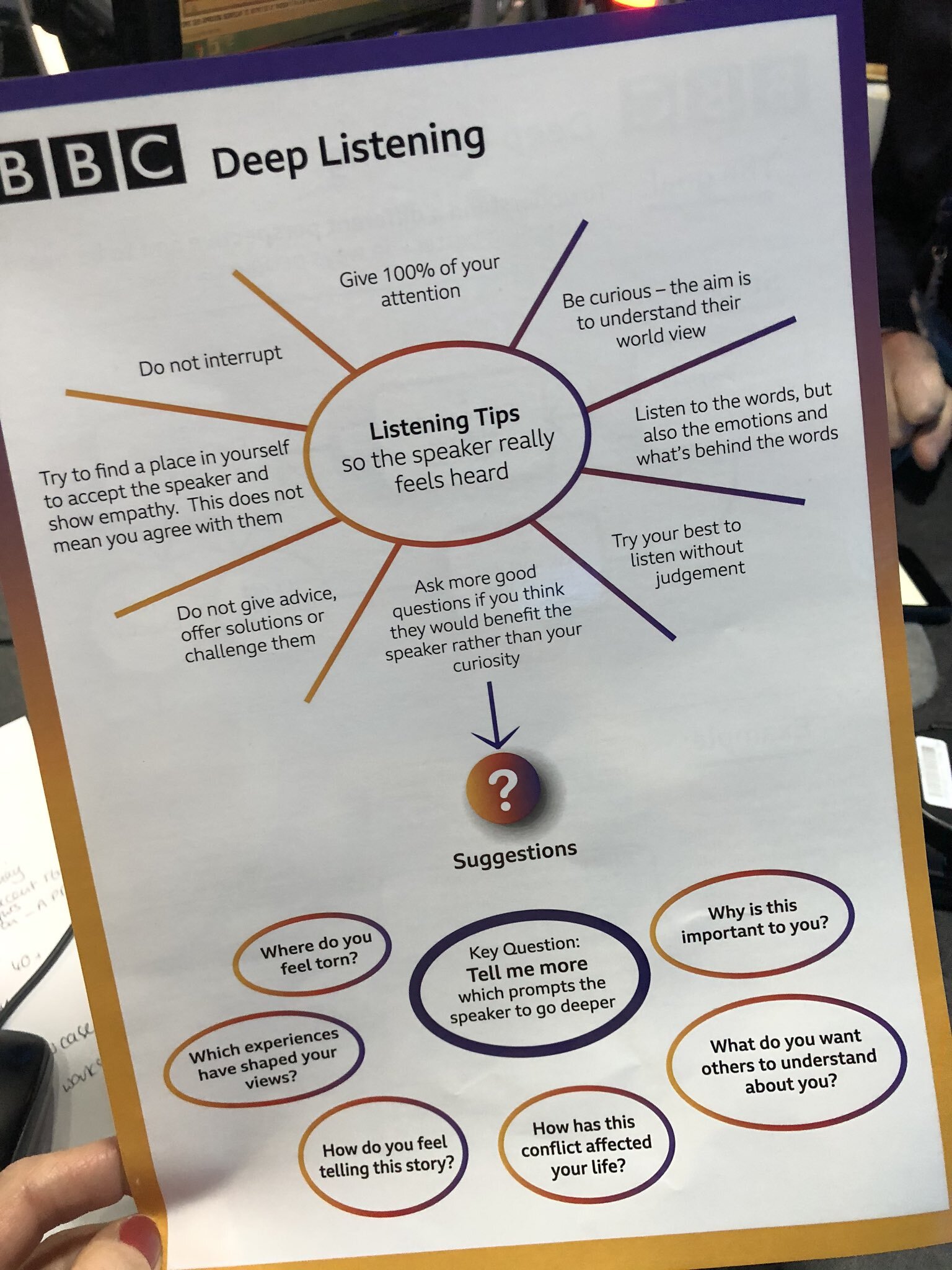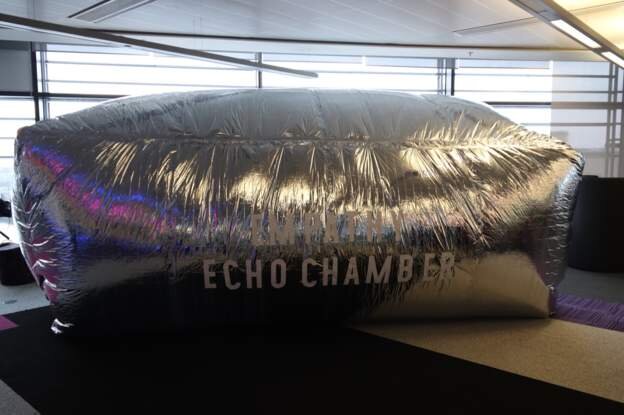For all the abuse it gets from every side, the BBC can do belonging and crossing divides extremely well
Picto Facto leading a parade through the centre of Norwich
A beleaguered institution in the UK at the moment, is the BBC - from a number of angles. But we have noted over many posts here how the organisation has an urge for social cohesion, a bias towards a gentle cosmopolitanism, that often renders up the most moving and inspiring stories - from the UK and globally.
Here’s two examples of how this happens, from the very local to the global level. First, a Valentine’s Day story from Norfolk:
A festival of light involving giant installations, fire performances and a parade of dogs in illuminated costumes hopes to help fight loneliness and celebrate love.
Love Light features 30 pieces of public art and attracted large crowds in Norwich city centre on Friday night.
Caroline Bidewell, from the team, hoped the festival's theme of "love and belonging" would "bring people closer together".
The festival features a number of international light artists who have created a range of giant installations projected on and around many of the city's historic buildings.
Picto Facto led a parade through the centre of Norwich as part of the festival designed to celebrate "what makes us different and what brings us together"
If you’re already a co-creator, click here. And if you can, please contribute!
The festival is working in collaboration with the Norwich Together initiative which aims to tackle loneliness.
During Friday night's parade, "chatty volunteers" waited along the route of the light trail to strike up conversation with attendees, in an effort to make everyone feel welcome and included.
Alex Rinsler, project creative director, said: "The objective is not to replace the Valentine's experience... but small [social] things can make a difference.
"If it works, wonderful. If it doesn't work, at least we tried it. I think that all towns and cities are struggling with social inclusion."
More here. LoveLight is an example of what we’re supporting and exploring in our “Create The Feel” action theme - the joyful, convivial conditions that can trigger positive, civic and empathetic change.
A few clicks away, and you find yourself in a rich BBC portal page titled “Crossing Divides” - a cross-media event (BBC News and BBC Radio 5 Live), culminating on the 5th March. The aim is stated below:
At a time when it’s increasingly hard to find common ground, we’re bringing 50 people together who disagree and might never normally meet to discuss big issues, like climate change, class, immigration and Brexit…
#CrossingDividesLive will give you the tools to break out of your bubble, and really listen to the other point of view.
The 50 were gathered together at the BBC’s Salford Quays studios, and entrained in everything from deep listening techniques, to immersion in a giant silver echo chamber
The “Live Updates” feed for Crossing Divides is worth exploring: ostentatiously thorny questions—should obese people pay more tax to fund the NHS? Was it the right or wrong decision for Britain to vote to leave the EU? Is eating meat wrong?—were slowly explored through deep listening.
The reflection from the BBC’s Home Affairs editor Mark Easton, at the end of the day, was particularly insightful:
Watching the 50 Crossing Divides Live volunteers come face to face with a fundamentally different opinion proved to be a remarkably positive experience, reinforcing one’s faith in human nature.
At its core, the exercise put listening - not just any listening – but deep listening. This technique requires someone to validate what they are hearing. Not to agree but to demonstrate they understand someone else’s viewpoint.
We tend not to listen to each other in this way. It can feel quite uncomfortable to give real space to arguments with which we disagree.
It proved to be a profound and emotional process, challenging participants to engage in a way that felt almost unnatural as they stripped away layers of understanding of each other’s views. Some of the encounters ended as they had begun, but many produced a connection that was deep and personal.
A few of the conversations ended in a hug, a promise to stay in touch. One resulted in tears as the pair realised aspects of their own personality that they had hidden even from themselves.
Such ‘meaningful interaction’ can work very successfully at an individual level, creating relationships and friendships across the divide as people recognise their shared humanity. But the question is whether this kind of exercise has a value at a community level.
Local and national government is looking to meaningful interaction as a way to deal with dangerous social division and improve community cohesion. Its power is evident when one pair of eyes takes the time to stare deeply into the eyes of another. Can we embed deep listening into everyday life and reap the benefits for everyone?
And to complete the picture, the Beeb also provided a page on its World section on Crossing Divides, globally sourcing examples of public empathising, anti-loneliness and children’s activism.
Not everyone would cite The BBC as, institutionally, an exemplar of deep listening… But it’s hard to see what other non-public media organisation would even see the need to programme such an event. We’ll miss the BBC’s socially integrating function, if it’s taken down for more structural and commercial reasons.





